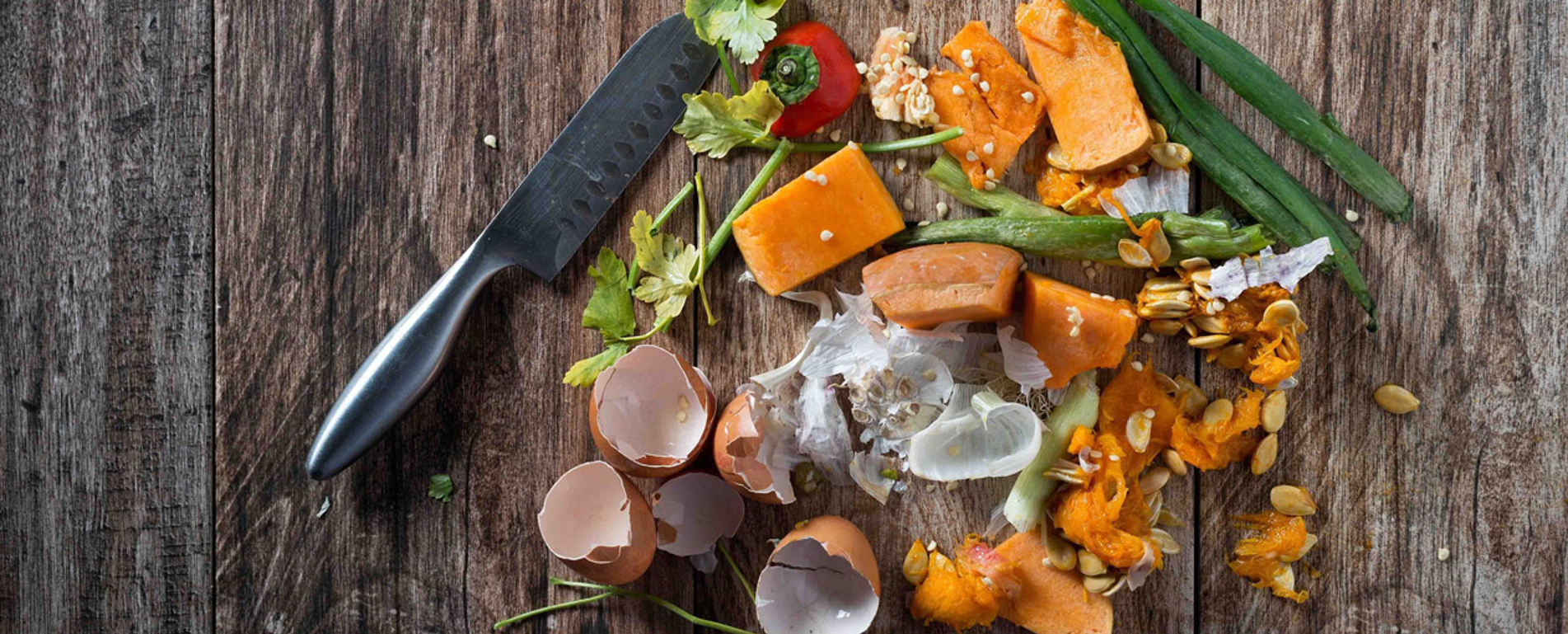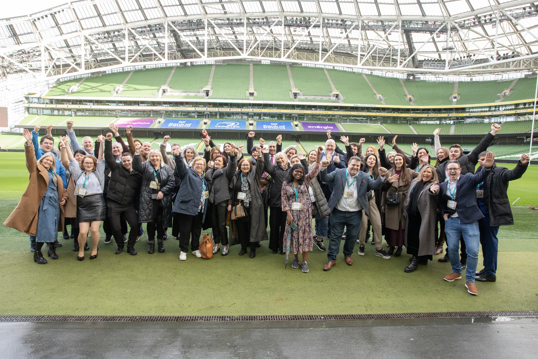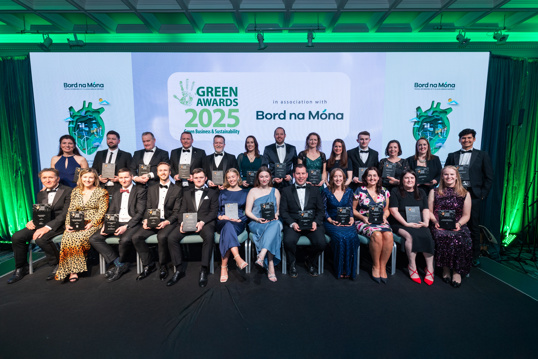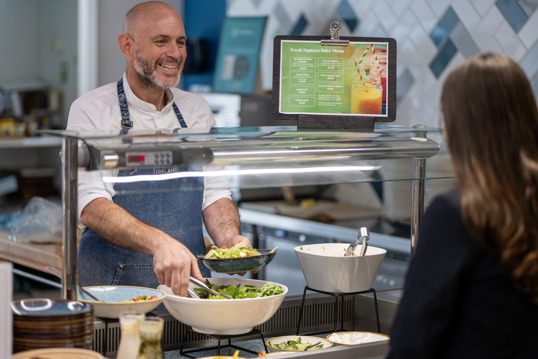Food Waste: The Bigger Picture…
The enormous task of tackling the food waste crisis cannot be understated.
33% of all food produced globally is lost or wasted every year and just 25% of the food wasted globally could feed all 795 million undernourished people in the world.
Furthermore, 8% of all greenhouse gas emissions are attributable to food loss and waste.
Closer to home, according to the Environmental Protection Agency (EPA) and based on current estimates, Ireland generates approximately 1.1 million tonnes of food waste per year.
It’s a BIG problem.
So, we’re taking immediate action.
Introducing Olio and DigiTally, our latest duo of tech-forward initiatives promising big things in the fight against food waste.
Olio: Share More, Waste Less.
We’re delighted to join the Olio Food Waste Heroes programme, a brand new partnership enabling sites around the country to share surplus food otherwise destined for landfill.
Through the Olio app, we’re able to connect directly with trained local volunteers, who collect our food and share it with people nearby.
That way, surplus food ends up feeding the local community - rather than ending up in the bin.
Olio are already making giant waves in the fight against food waste…
Their efforts have helped to re-distribute 96 million portions of food, saving 14 billion litres of water, 114k tonnes of CO2 emissions and 390 million car miles. Mightily Impressive stuff!
Operationally, the process couldn’t be simpler:
At the end of every service, our teams set aside whatever hasn't been eaten or sold that day. We notify Olio, who send out a food-safety trained local volunteer to collect the food. Volunteers take the food and share it safely with members of the local community.
By donating food through Olio, we aim to change lives in local communities across the nation.
“It massively helps with the cost of living and rising food bills. It’s also allowed me to help family, friends, and homeless people too.”
Anonymous Olio user
“The people you collect food from don’t know you or your circumstances, the shame, guilt and embarrassment is massively reduced.”
Anonymous Olio user
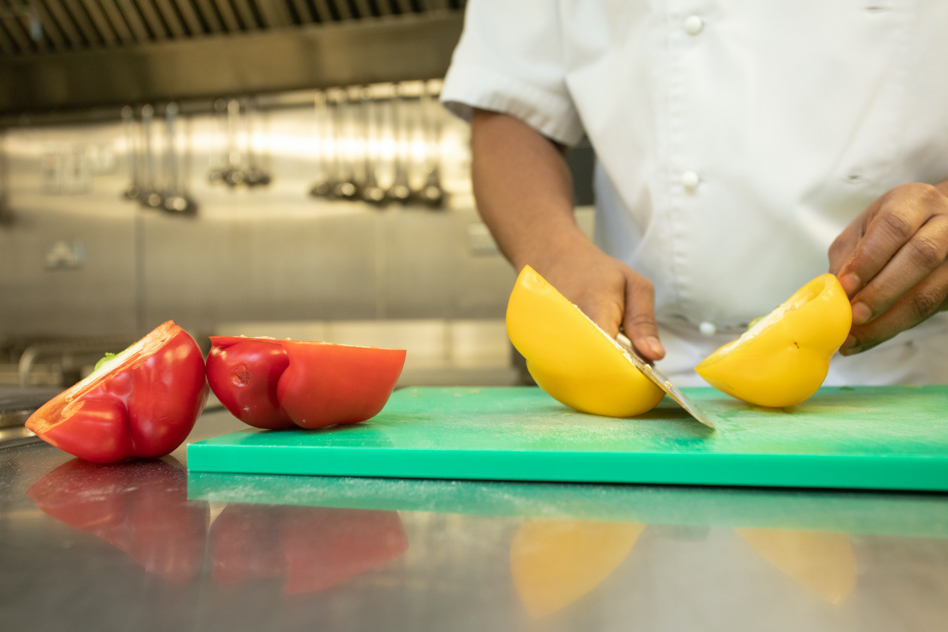
Taking Stock Of Our Food Waste Through Digitally
Three year’s ago, Compass Ireland joined forces with Digitally, one of the market’s most-sophisticated yet intuitive software solutions to help digitise our stock-taking process.
The initiative promised to save approximately 25,000 labour hours and 87,000 sheets of paper per annum, whilst simplifying one of the industry’s most laborious, yet essential administrative tasks.
Teams across the country welcomed brand-new time-saving electronic tablets serving to optimise what was previously a predominantly analogue process.
Owing to the success of the initiative, we reached out to DigiTally once more, this time to tackle a much, much larger issue: food waste.
Getting To The Root Cause
The food waste hierarchy details ‘prevention’ as the most critical aspect of food waste control, and as Ireland’s largest food service provider, that’s something well within our power to influence.
The business began by identifying five categories by which we could identify the nature of waste being generated:
1) Out of date: Items that have expired their use-by-date, including retail packaged items.
2) Plate waste: Waste returned to the dishwashing area on a customer’s plate
3) Pre-Production: Waste generated from preparing a dish i.e. egg shells, peelings, skins and bones.
4) Post-Production: Any food disposed of after service i.e. unsold items unsuitable for re-purposing.
5) Retail Waste: Retail products thrown away for any reason i.e. damaged packaging.
Next, we tasked DigiTally to develop a simple and intuitive system that could make recording food waste a breeze, incorporating the five critical areas of site-generated food waste
INTRODUCING THE NEW ‘FOOD WASTE MODULE.’
DigiTally set about updating its software, creating a new ‘Food Waste Module’ capable of capturing digital feedback from weighing scales installed within our kitchen and waste management areas.
Now, all sites across the country are able to log their daily food waste figures.
Utilising DigiTally’s new data processing powers, we will interrogate the data and implement appropriate control measures to target the areas generating the highest volumes of waste.
As an added bonus, the new software is capable of telling us exactly how many meals have been wasted, making it simple to communicate the true impact of our waste-saving measures with customers, clients and colleagues.
WHY DOES WEIGHING FOOD WASTE MATTER?
Weighing food waste and monitoring the data provides invaluable insights into waste generation patterns, allowing our teams to formulate and implement impactful waste reduction controls.
The process might seem simple at first, but the potential benefits to both the planet and our business are too promising to overlook…
Improved Awareness: Weighing food waste helps to raise awareness of the extent of the problem and highlights the need for waste reduction efforts. This can be used to educate our clients, customers and colleagues.
Data-Driven Decision Making: By tracking waste generation over time, it is possible to identify trends and patterns used to inform waste reduction strategies.
Increased Accountability: Weighing food waste creates a sense of accountability within our sites, as employees and customers become more aware of the impact of their waste-generating activities.
Better Resource Management: By tracking food waste data, we can gain a better understanding of how to optimise our food ordering and food preparation practices.
Cost Savings: Reducing food waste can lead to significant cost savings, great news for our clients and customers.
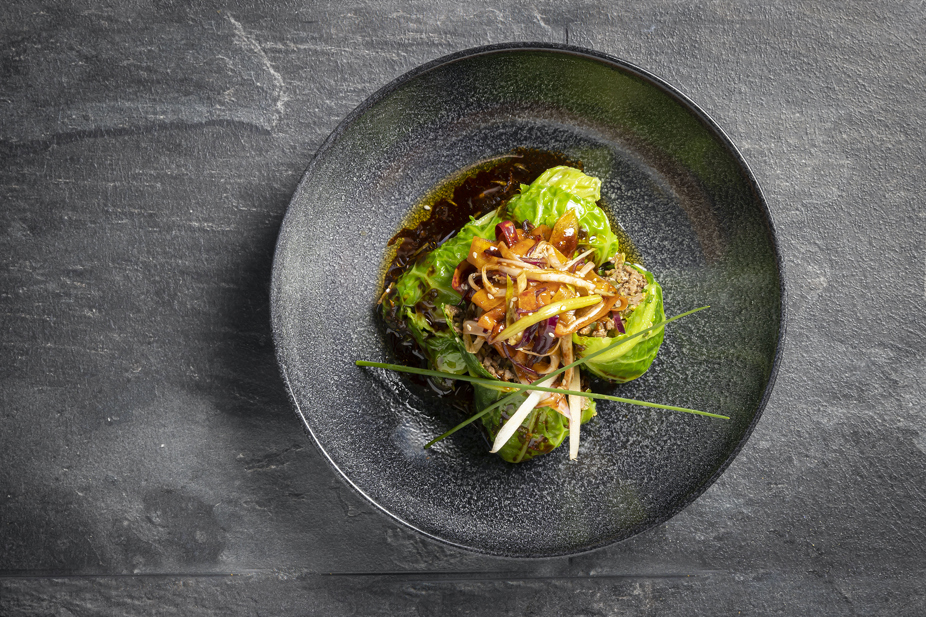
So, What’s Next?
What we do with all of this insightful data will ultimately determine the success of our initiative and we’re passionately motivated to make this work.
In 2021, we published our ambitious Net Zero Roadmap, containing a bold commitment to reduce our food waste by 50% by 2030. In doing so, we’ll be taking great strides towards achieving our wider sustainability goal, Climate Net Zero by 2030.
Over the coming months, we’ll be holding ourselves accountable and reporting on the progress of our Olio and Food Waste Module initiatives.
Stay tuned for more updates!
